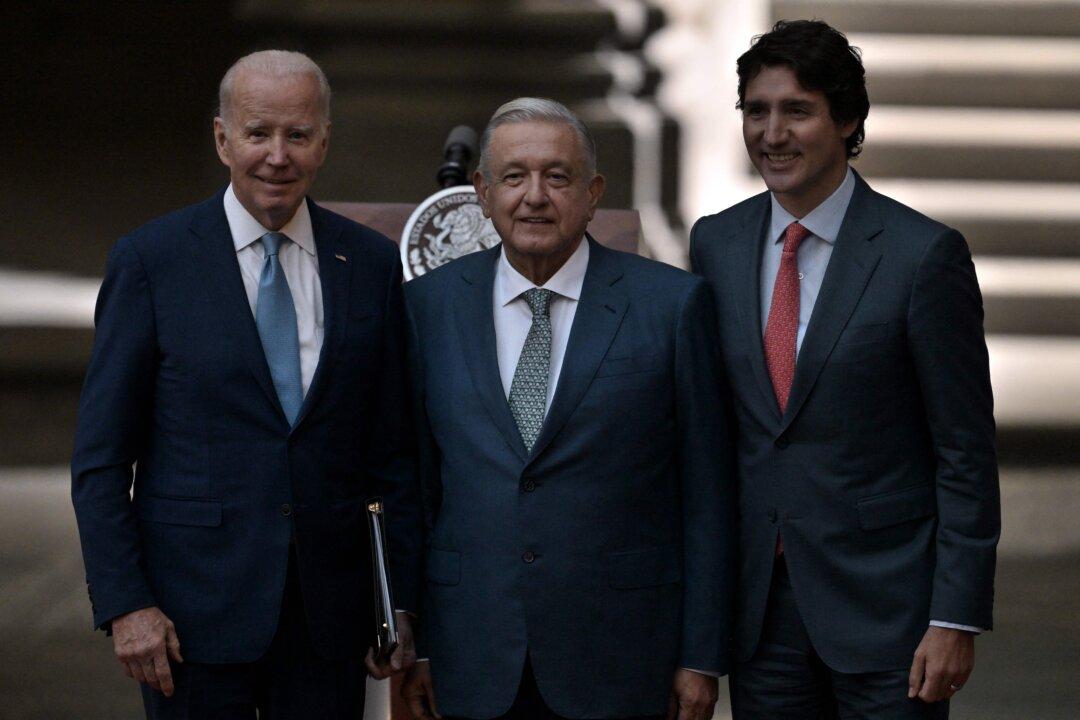Despite tensions between them, President Joe Biden, Canadian Prime Minister Justin Trudeau, and Mexican President Andres Manuel Lopez Obrador delivered a unified front in public statements on Jan. 10 to mark the conclusion of the two-day North American Leaders Summit in Mexico City.
Typically called the “three amigos summit” because of the close diplomatic and economic ties between the countries, the trilateral gathering is held most years. There was a hiatus during President Donald Trump’s tenure.





